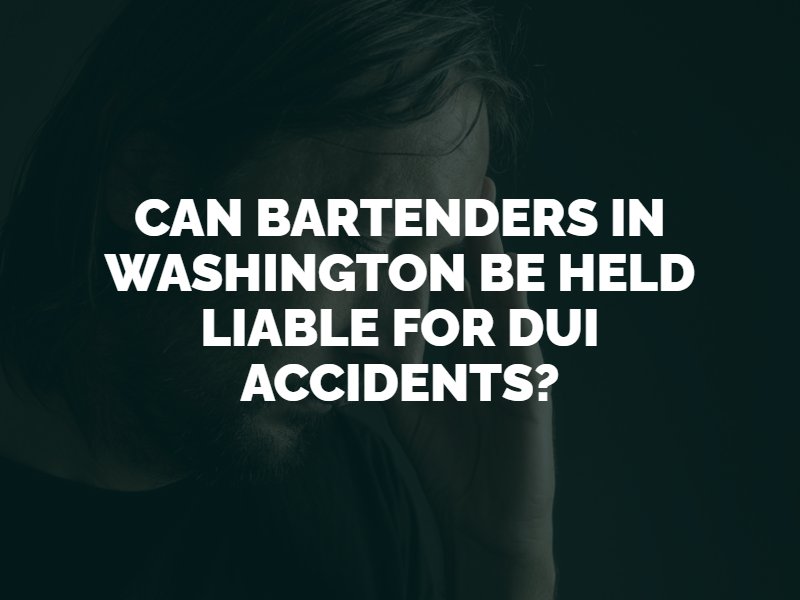Drinking and driving is dangerously reckless behavior that often results in serious harm, not only to the drunk driver but to innocent motorists sharing the roadway. Choosing to get behind the wheel after drinking is an egregious action, leaving the driver open to serious criminal charges and liable for damages to accident victims.
Typical damages in a drunk driving accident include medical expenses, lost wages, and compensation for pain and suffering as well as property damage to a vehicle. In the worst cases, the intoxicated driver is liable for a wrongful death action. But what about the bartender who was responsible for overserving the drunk driver? Is a bartender liable for a car accident victim’s damages in Washington? In the event you have been injured due to a driver under the influence, call our Seattle drunk driving accident attorneys today.

Washington’s “Dram Laws” establish legal liability for over-served customers in bars and pubs. According to the Revised Code of Washington section 66.33.: “No person shall sell any liquor to any person apparently under the influence of liquor.” This means any vendor who sells alcohol to a customer who shows obvious signs of intoxication may be held liable for damages caused by the customer, including in a DUI accident. In most cases, this isn’t the bartender personally, but their employer—typically the owner of the establishment. However, a successful lawsuit against an establishment’s liability for over-serving often depends on the type of claim, whether it’s a first-party or third-party liability claim makes a difference in how easy it is to prove liability.
First-party lawsuits are challenging to prove and are rarely successful against a bartender or their employer after a DUI. In a first-party claim, the intoxicated driver attempts to sue an establishment for over-serving them, essentially blaming the bartender for their intoxication and any poor decisions they made while intoxicated, such as driving while drunk. These cases do not often succeed because a bartender doesn’t force the individual to drink. Adults are responsible for their own choices. However, a first-party lawsuit after a Washington DUI may succeed if the bartender knowingly served alcohol to a minor.
In a third-party lawsuit, an individual harmed by a drunk person—in a DUI accident, fight, or act of violence—holds the bartender or establishment legally liable for overserving the person who later caused them injury.
Proving an establishment liable for overserving an individual isn’t always easy unless the overserved person is a minor. In most third-party cases of overserving an adult, the evidence must support the following:
Bartenders have a responsibility to know and acknowledge a patron’s obvious signs of intoxication such as slurred speech, balance problems, red eyes, and aggressive or out-of-control behavior. Hiring an injury lawyer in Seattle would be helpful in analyzing a case to prove liabilty.
When a bartender observes these signs of intoxication they have a duty to cease serving alcohol to the individual. If they continue to serve an intoxicated individual alcoholic beverages they may be liable for the damages if the intoxicated person causes a DUI accident.